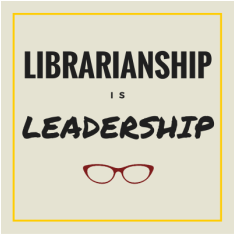AuthorMaggie Kay Hall-Librarian, Mother, Life-Long-Learner and Literacy Advocate |
Back to Blog
 It seems that it is now more important than ever for school librarians and teachers to collaboratively work together, sharing the vision to educate students in the skills required for success in today’s digital age. With the push of technology integration into our state standards and classroom curriculum, school librarians can serve as a great resource for teachers, students, administration, and parents. There are various factors that can contribute to the teacher-librarian collaboration struggles (testing/standard/scheduling/territorial conflicts). However, if the teacher-librarian collaboration is successful, it can potentially result in a notable increase in learning and higher test scores across campus. For this collaboration to become effective, the teacher and librarian must first build a relationship and have a foundation of trust in addition to balancing out their complementary skills. After all, the teacher and school librarian do share many common goals as it relates to literacy development and lifelong learning (Draper, 2008). If I were to implement a collaboration plan at my current middle school campus, the focus would be the initial implementation of technology and research skills. This could include the entire reading/ELA team, or the department head from every content area, so that students can begin to apply new research skills in every class, and for all assignments. Although, it is well known that students today have access to the Internet from just about anywhere, and in many cases, also have access to 1:1 technology available in their classrooms. However, many students coming into the sixth-grade are reporting that they have never previously been taught Internet research skills. My goal would be to educate all students on how to navigate online sources successfully. At my Title I campus, there are most students than expected that just do not have access to technology outside of school grounds. Lesson examples we plan together throughout this collaboration effort may include:
An effective librarian desires an instructional partnership with campus teachers, because if we can help students by being a support for the teacher, then we are doing what is in the best interest of everyone. Reference: Asselin, M. (2005). Teaching information skills in the information age: An examination of trends in the middle grades. School Libraries Worldwide, 11(1), 17–36. Draper, R. (2008). Redefining content-area literacy teacher education: Finding my voice through collaboration. Harvard Educational Review. 78 (1): 60–83.
0 Comments
Read More
Leave a Reply. |
Maggie Hall, BBA, M.Ed., ILS
 RSS Feed
RSS Feed
